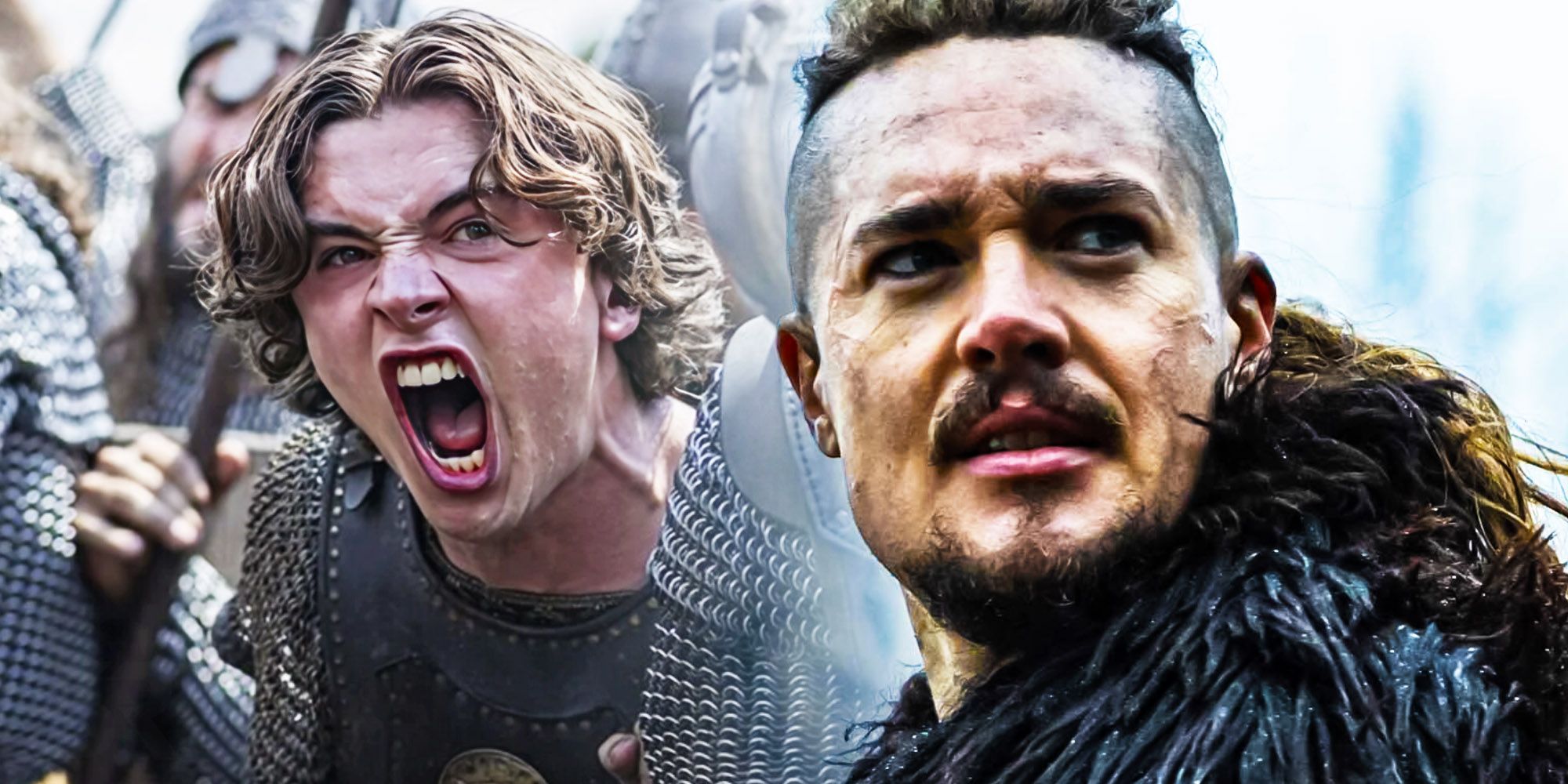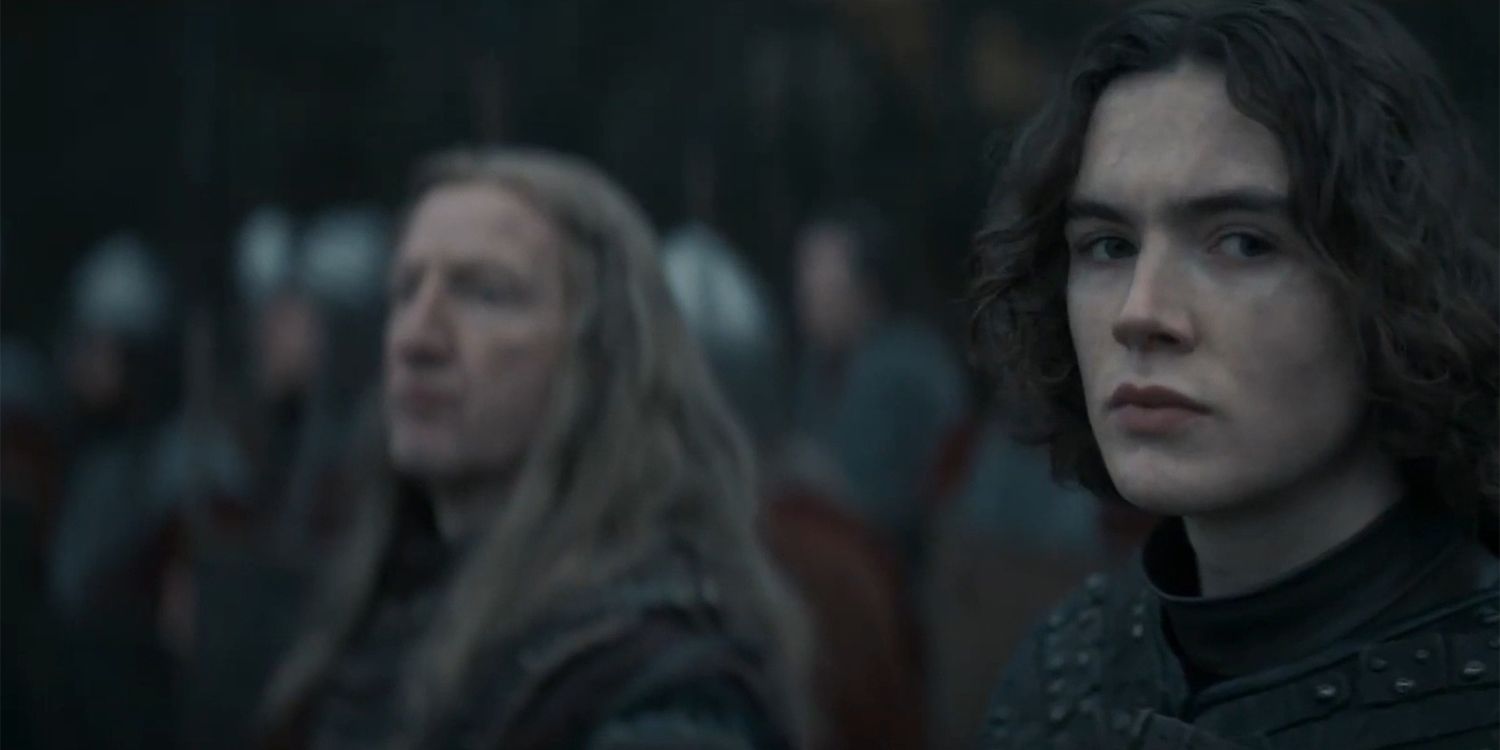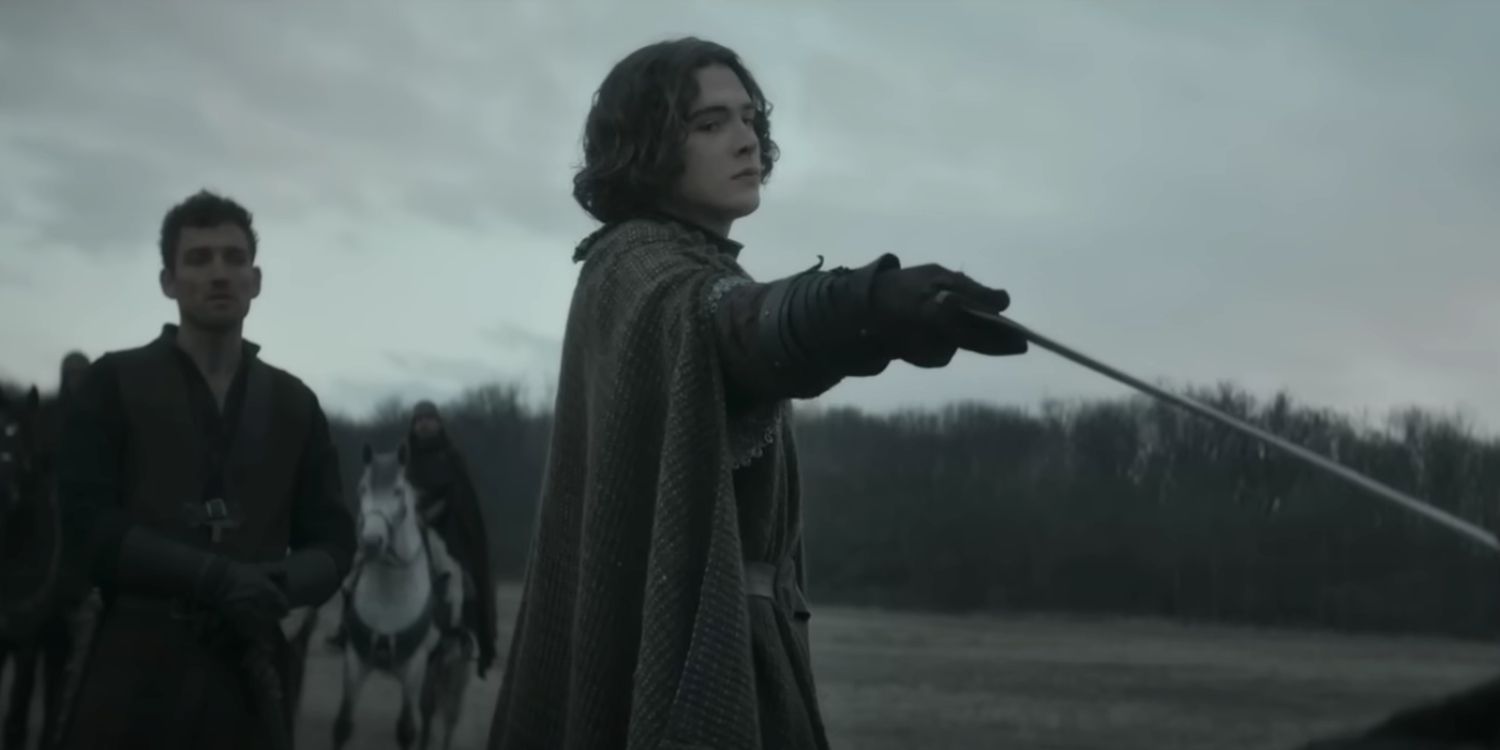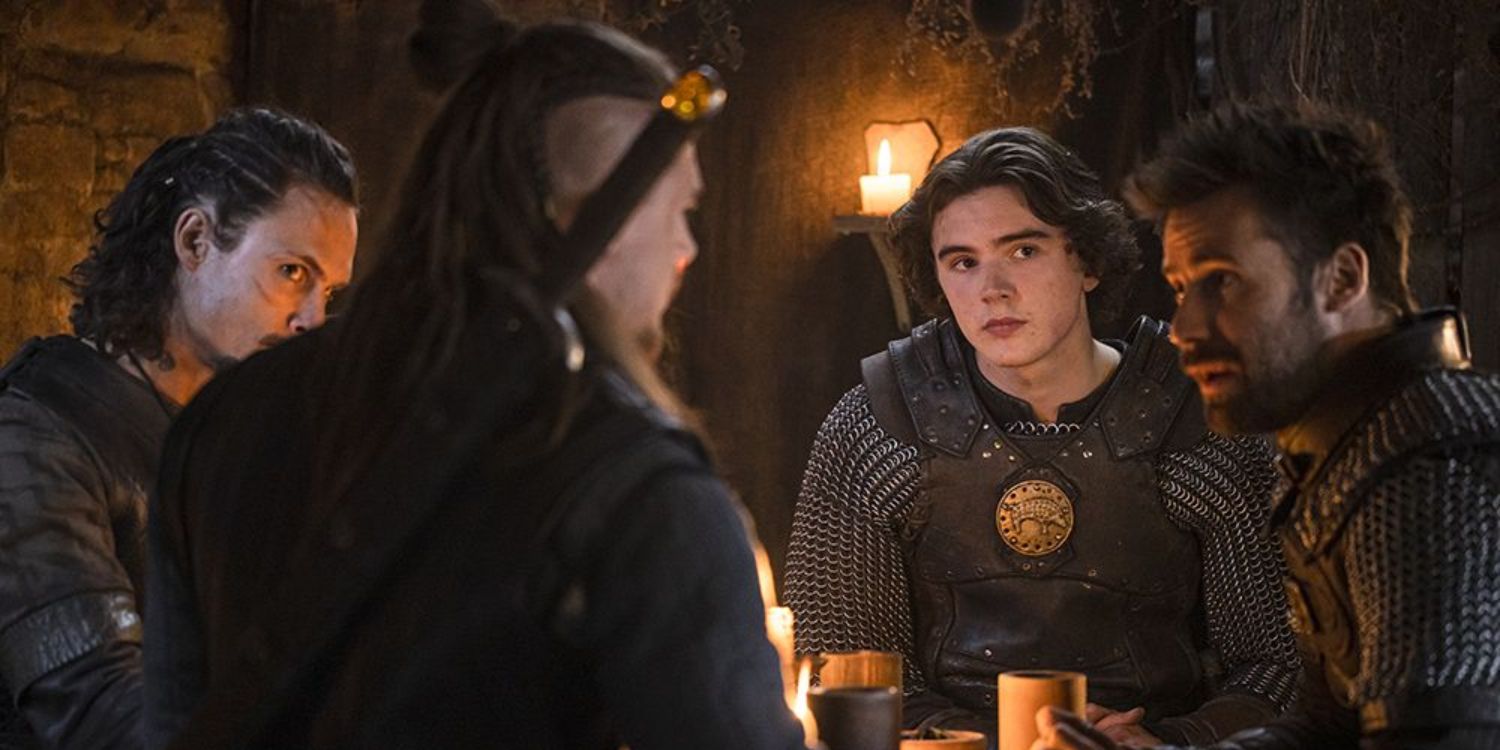The Last Kingdom: Seven Kings Must Die has confirmed what is only hinted at in Bernard Cornwell's Saxon Stories novel series: Aethelstan is gay. The movie concluded The Last Kingdom's story in thrilling fashion, though Seven Kings Must Die's ending is somewhat obscure. The fate of Uhtred of Bebbanburg is particularly ambiguous, but overall Seven Kings Must Die does well to bring the series to a fitting end.
Seven Kings Must Die has a lot of ground to cover in wrapping up The Last Kingdom's story, but it does an adequate job of bringing most of the character arcs to a proper conclusion. One of the most important of those arcs becomes that of Aethelstan, the successor to Edward and eventual first king of all England. Aethelstan's story was necessarily central to the plot of Seven Kings Must Die, and the reveal that he is gay became a critical part of the movie's plot. It also added a much-needed level of depth to Aethelstan's character because of the societal implications of being gay in medieval Britain.
How The Last Kingdom Books Hinted That Aethelstan Is Gay
While Aethelstan is never explicitly stated to be gay in Cornwell's novels, it is implied that he has taken male lovers and even had his decisions influenced by lust on at least one occasion, especially by Ingilmundr. Most of what is said on the matter comes to Uhtred through rumor, however, as he is the narrator of all 13 novels. Ingilmundr is not the sole love interest of Aethelstan in the books as he is in Seven Kings Must Die, but he is the most influential, save perhaps for Aeldred (who does not appear in the movie).
It is also suggested that Aethelstan enjoys the presence of good-looking young men in his court. Once again though, all of this is speculation in the books, which never explicitly confirm Aethelstan's sexuality. Author, Bernard Cornwell, has, however, confirmed that Aethelstan is meant to be gay in the novels. The fact that it is never explicitly confirmed within the text is likely Cornwell's attempt to remain realistic with his interpretation of history. If Aethelstan were gay in real life, it would have almost certainly been a tightly kept secret because of the prejudices of medieval society.
Why The Last Kingdom Movie Makes Aethelstan's Sexuality More Clear
The Last Kingdom: Seven Kings Must Die made Aethelstan's sexuality clearer because it is an essential part of the movie's plot. Aethelstan's internal conflict between his religious beliefs and his sexuality is a central aspect of the movie, and the driving motivator for his conquest. Aethelstan believes he must conquer lands and spread Christianity in order to atone for being gay because Ingilmundr convinces him it is so.
This internal conflict becomes the catalyst for the story by causing Aethelstan to invade neighboring lands, causing the various kings in Britain to rally against him and leading to the famous Battle of Brunanburh. Aethelstan always needed to be a key figure in Seven Kings Must Die because of his real-life importance to the story it wanted to tell regarding the formation of England. Aethelstan being gay added a critical level of depth to his character, while providing the spark needed to accelerate the Saxon expansion that led to the Battle of Brunanburh.
Was Aethelstan Gay In Real Life?
It is difficult to say with any actual certainty if the real King Aethelstan was gay; however, it is a legitimate possibility. It wasn't at all accepted in this particular period of history, so it never would have been broadcasted or written down anywhere if Aethelstan were gay. Saxon Stories author, Bernard Cornwell, stated in an interview with Sharon Kay Penman that his decision to make Aethelstan gay in his novels was based on the facts that Aethelstan never married or had children and that he liked to decorate his hair with golden ringlets.
Cornwell does not seem to see this as any type of definitive evidence of Aethelstan's sexuality, but he rightly decided that Aethelstan being gay was a real possibility. His decision to make Aethelstan gay added a new level of depth to the character and provided representation for the LGBTQIA+ community in a time period that was particularly cruel to any non-heterosexual or non-cisgender person. The Last Kingdom: Seven Kings Must Die also benefited from this decision because it provided a way of accelerating events by using Aethelstan's internal conflict as a motivator for his conquest.
Source: Sharon Kay Penman




